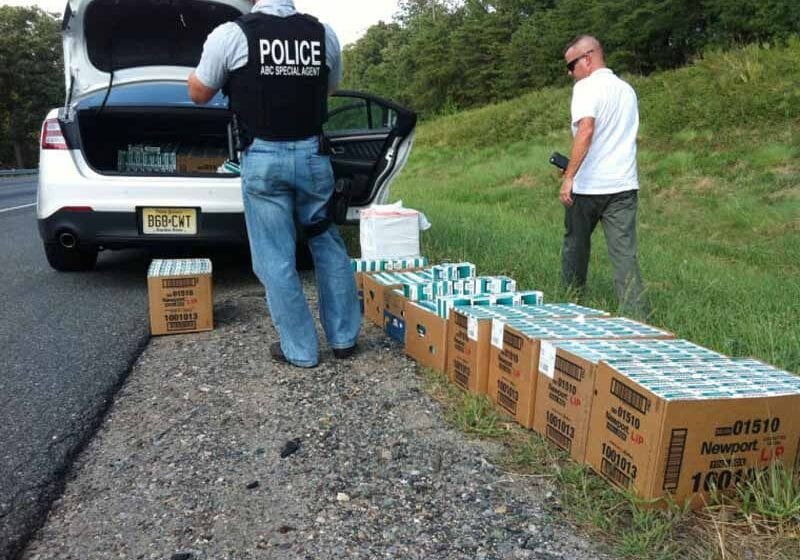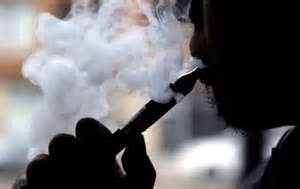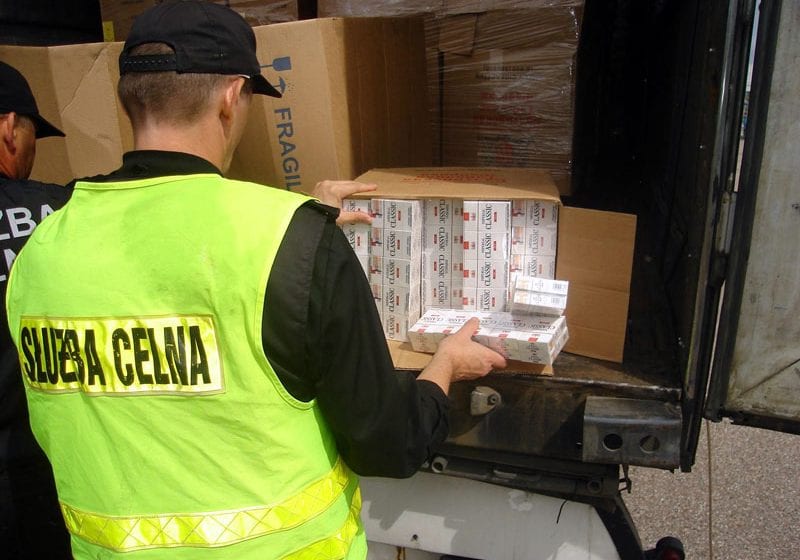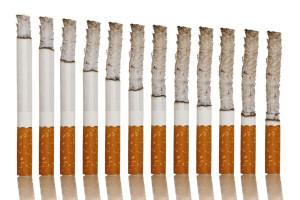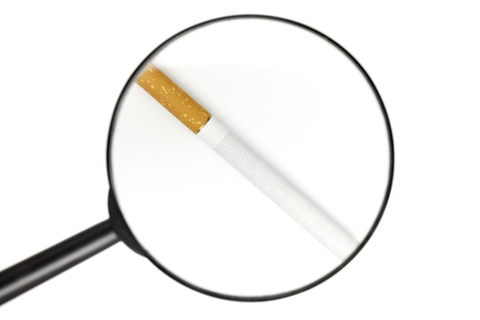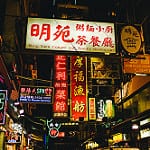Sales of illicit cigarettes have been rising in New York City for more than 10 years and now outnumber sales of licit cigarettes, according to a story by Gregory Bresiger for the New York Post quoting Scott Drenkard of the Tax Foundation.
New York had “the worst smuggling problem in America,” said Drenkard, adding that the least a smoker could now legally pay for a pack in New York City was $13, which was recently raised from $10.50.
Cigarette taxes and a new minimum price rule have raised the price of a pack by about 200 percent over the past decade.
Consequently, smugglers buy cigarettes in a low-tax state such as Virginia, which imposes a 30-cent tax, and sells them in New York, where the combined city-and-state tax is £5.85.
“Price disparities create incentives for illegal activity,” said Kim Kessler, assistant commissioner for the bureau of chronic disease prevention and tobacco control, NYC Health Department.
“But we know that despite this activity, raising the price of tobacco products still reduces consumption. The lives we save by raising the price of tobacco far outweigh any lost taxes due to illegal sales,” Kessler told The Post.
“The adult smoking rate has decreased from 21.5 percent in 2002 to 13.1 percent in 2016. Increasing the cigarette price floor to $13 is projected to lead to a 6.4 percent decline in adult cigarette smoking.”
Category: Taxation

Consuming question

Anti-smuggling campaign
The UK’s Tobacco Manufacturers’ Association (TMA) has launched a nationwide campaign to help fight the illegal trade in tobacco products.
In a press note issued yesterday, the TMA said posters would be displayed on telephone boxes in 50 illicit-tobacco hot spots across the UK so those tempted to buy or sell cheap illicit tobacco were warned of the consequences.
The campaign encouraged those who were aware of illicit tobacco, but who didn’t buy or sell it, to report any suspicious activity to HM Revenue & Customs.
The campaign, the TMA said, would be waged also at the UK’s busiest port and various airports to remind people who bring tobacco back from abroad that it was illegal to sell it on without paying UK taxes.
‘The campaign has been developed following research which has found that many adult smokers are unaware of or simply disregard the law,’ the note said. ‘This campaign will therefore “nudge” smokers away from the illicit market by reminding them of what is legal and what is not and raise awareness of the HMRC illicit trade reporting hotline.’
Posters have been put up in 50 locations in Cardiff, Glasgow, Perth, Dundee, London and Manchester, while billboards are being displayed at Dover international sea port and at the airports of Glasgow, Glasgow Prestwick, East Midlands, Manchester, Cardiff and Belfast.
‘Illegal tobacco is a major social problem,’ said the note. ‘According to HMRC, it cost the government £2.5 billion in lost taxes in 2016-17 which in turn puts important public services at financial risk. Moreover, it brings crime into local communities, hurts small independent retailers and the profits from illegal tobacco have been known to finance terrorism and organised criminal gangs.
‘It has been estimated that the sale of illicit tobacco made criminals more than £1.5 billion and cost the small retail sector more than £1.7 billion in revenue.’
“The tobacco industry is committed to helping fight the illegal tobacco market which impacts communities, public services and small retailers,” said Giles Roca, director general of the TMA.
“The Government needs to commit greater resources to tackling illegal trade and needs to consider innovative solutions post-Brexit to halt the flow of cheap foreign tobacco into the country.”
Looking on the bright side
Indonesia’s Ministry of Finance estimates that the Government may collect up to Rp3 trillion ($207 million) in additional revenue next year from a new excise on vaping liquids, according to a story in The Jakarta Globe.
At the beginning of this month, the Government imposed a 57 percent excise tax on e-liquids containing tobacco extracts or nicotine, a rate the Globe said was more than four times the maximum excise on ‘regular cigarettes’.
The country’s 200 domestic producers are required to start paying excise on e-liquids by October. 31.
Noegroho Wahyu, acting director of excise, said that so far three e-liquid producers were registered to pay excise, but that the government expected the remaining producers to register before the deadline.
The Government is expected to collect Rp50-70 billion in additional revenue from the new excise this year, but it estimates that will rise to about Rp3 trillion per year once all manufacturers are registered.
Aryo Andrianto, chairman of the Indonesian Personal Vaporizer Association (APVI), was quoted as saying that the excise rule meant the government had officially acknowledged the industry and provided it with legal certainty.
Vaping liquid producers were planning to increase their prices by a maximum of 20 percent to soften the blow on consumers, Aryo said, before indicating that the producers were not opposed to the excise tax.
Meanwhile, producers hope that, following the imposition of the excise tax, the government may be more willing to support the industry’s export efforts.
Deni Syarifa, chairman of the E-Liquid Micro-Entrepreneurs Association, estimates that manufacturers could export up to two million bottles of vaping liquid per month.
“There is currently demand for around 5,000 to 10,000 bottles per month from just one country,” Deni said, adding that producers planned to ship the liquid to countries in Asia, Central America and Europe.
A question of smuggling
A German member of the European Parliament has asked the Commission what it is doing to combat the smuggling of tobacco products.
In a preamble to his question, Wolf Klinz said the EU was confronted with the smuggling of tobacco products across its eastern and southern borders, and, because of the low prices of these products, with the undermining of the EU’s efforts to limit smoking.
He asked whether the Commission was aware of the smuggling methods and the organised groups behind the smuggling, and what the Commission was doing to combat the smuggling.
The Commission is due to answer in writing.
Sales down, revenue up
Sales of cigarettes in South Korea during the first six months of this year were down by 1.6 percent on those of the first half of last year, according to a Yonhap News Agency story citing data compiled by the finance ministry.
South Korean smokers bought 1.68 billion 20-piece cigarette packs from January to June, down from 1.71 billion packs during the same months of 2017.
But not everything was down. The Government collected 5.5 trillion won in taxes from cigarette sales during January-June, up 1.5 percent from the taxes collected during the same months of 2017, 5.4 trillion won.
It is not hard to see why these figures are as they are. In January 2015, the price of cigarettes in South Korea was increased by 80 percent, from 2,500 won (US$2.25) to 4,500 won per pack, almost entirely through a tax increase.
In 2016, the Government mandated that tobacco companies put graphic warnings on the upper part of both sides of cigarette packs.
Nigeria e-cig launch plan
British American Tobacco plans to launch its electronic cigarettes in Nigeria in the near future, according to a story in the Nation, relayed by the TMA.
Chris McAllister, MD of BAT Nigeria and West Africa, reportedly said the stability of the exchange rate and the revival of consumers’ purchasing power had given the company “the confidence to continue to invest in our state-of-the art factory in Ibadan and our recently commissioned West African headquarters in Lagos”.
He added that the company planned to launch “our world leading range of e-cigarettes in Nigeria in the near future”.
McAllister said the company was aware of the health risks of smoking and was investing in products that had the potential to reduce harm.
He said also that BAT Nigeria had worked with the government to reduce the illegal trade in tobacco from 80 percent to about 20 percent. This was the result of having a local manufacturing operation that stimulated a value chain of local businesses.
Commenting on an amendment to the excise tax law, under which the current ad-valorem tax rate will remain at 20 percent while an additional specific rate will be introduced over a three-year period, McAllister said there should be collaboration and consultation between relevant stakeholders for tax policies to be balanced and reasonable, reducing the potential for unintended consequences in respect of both the economy and wider government objectives.
E-liquid tax postponed
The Indonesian Government has delayed from July 1 to October 1 the imposition of a 57 percent tax on e-liquids manufactured before July, according to a story in The Jakarta Post.
“We cannot implement the regulation starting on July 1 because there are many users,” the Finance Ministry’s technical and excise director, Nugroho Wahyu, was quoted as having told the tribunnews.com.
“We told the vendors they are allowed to sell e-liquid without the additional tax until October 1.”
The delay applies only to e-liquids produced before July – presumably, July 1.
Liquids produced after that date will be subject to the 57 percent tax burden.
The Finance Ministry’s Customs and Excise Directorate General has estimated that the revenue from the e-liquids tax will amount to Rp5-6 trillion annually.
The Customs office has estimated that, this year, revenue from the e-liquids tax will reach about Rp200 billion.
Taxing progress
E-liquids are to be the subject of a 57 percent excise tax in Indonesia from July 1, according to a story in The Neutral News.
Indonesia officially recognizes eight varieties of e-liquids, premium and non-premium, each of which retail in four sizes.
They range in price from Rp10,000 to Rp120,000.
Fifteen milliliters of premium e-liquid retails for Rp18,000, 30 ml for Rp35,000, 60 ml for Rp70,000, and 100 ml for Rp120,000.
Fifteen milliliters of non-premium e-liquid retails for Rp10,000, 30 ml for Rp20,000, 60 ml for Rp40,000, and 100 ml for Rp80,000.
No trace of reality
The ‘major tobacco companies’ are acting as corporate chameleons, spending millions on make-overs, trying to convince the world they have changed when they have not, according to a story by AB Gilmore and A Rowell of the University of Bath.
The story, published as a Tobacco Control blog, said that, shattering the ‘expensive illusion’ of change was the latest evidence, published this week in Tobacco Control, that had uncovered one of their greatest scams.
Not only were tobacco companies still involved in tobacco smuggling, but they were positioning themselves to control the very system governments around the world had designed to stop them from doing so.
Their elaborate and underhand effort, implemented over years, involved front groups, third parties, fake news and payments to the international regulatory authorities meant to hold them to account.
Towards the end of their piece, Gilmore and Rowell said that many intergovernmental organisations and national tax and customs authorities around the world appeared to have swallowed, without question, the tobacco industry’s misleading version of events.
‘It is vital that they wake up and realise what is at stake: if the tobacco industry’s tricks work, they will be left in charge of the very system meant to keep them in check, the system meant to stop them from smuggling their own products, the system meant to safeguard government revenues,’ they said.
‘Yet identifying which are the industry’s latest front groups, spokespeople, linked companies or coalitions is increasingly difficult given the lengths industry will go in order to disguise these interests.
‘If there is a simple message it is this: no government should implement a track and trace system linked in any shape or form to the tobacco manufacturers. In short, no-one can trust the tobacco industry chameleons.’
Another day, another panic
Hong Kong needs to strengthen its regulatory and legislative framework quickly to control and regulate electronic cigarettes better, according to a story in The China Daily quoting the health secretary of the Hong Kong government.
“We are very concerned about the existence of e-cigarettes,” the Secretary for Food and Health Sophia Chan was said to have told media representatives after a meeting at the Legislative Council (LegCo).
“According to international studies and some of the testing of e-cigarette samples in Hong Kong, we have discovered that many of these constituents in electronic cigarettes are harmful to health.
“So, we need to quickly strengthen our regulatory framework and legislative framework in order to better control and also regulate e-cigarettes.”
Chan said the government had submitted to the LegCo a proposal about strengthening e-cigarette regulation and that a tax on these products would be considered.


